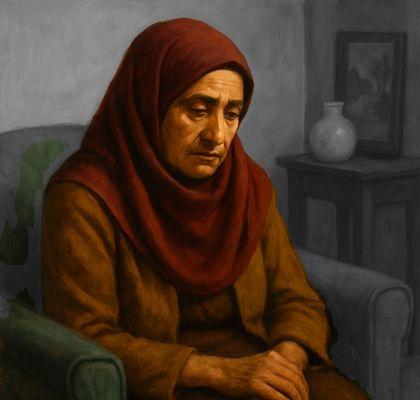How Loneliness Impacts Senior Health — What Families Should Know
- A Plus Homecare Services INC

- May 30
- 2 min read
Updated: Jun 12

As we age, it’s natural for life to slow down — but when that quiet turns into isolation, it can have a serious effect on our health.
At A-Plus Home Care, we often see firsthand how companionship and social connection aren’t just "nice to have" — they’re essential. In fact, research shows that loneliness and social isolation can be just as harmful as smoking or obesity.
A recent report from the National Academies of Science, Engineering, and Medicine, reviewed by mental health experts Dr. Nancy Donovan and Dr. Dan Blazer, confirms that loneliness and isolation significantly increase the risk of dementia, heart disease, depression, and even early death among older adults. You can read the full article here.
How Loneliness Impacts Senior Health — What Families Should Know
What’s the Difference Between Loneliness and Isolation?
Social isolation means having very few social contacts or interactions.
Loneliness is the feeling of being alone — even if someone has people around them.
You can be lonely in a crowd, or feel content while living alone. But for seniors, the risk of both tends to increase due to:
Losing a spouse or friends
Retirement
Physical or cognitive decline
Living in rural or inaccessible areas
Lack of accessible support
The Health Risks Are Real
The researchers found that:
Seniors who are lonely or isolated have a 50% greater risk of dementia
They are 30% more likely to suffer a stroke or heart attack
And there’s a 26% higher risk of early death compared to more socially connected peers
What Can We Do? How Loneliness Impacts Senior Health — What Families Should Know
The report encourages healthcare workers and caregivers to screen for signs of loneliness. At A-Plus Home Care, our PSWs (Personal Support Workers) are trained to recognize those signs too.
Here’s how in-home care can help:
Providing regular companionship
Supporting social connection with family
Assisting with transportation to community or faith activities
Helping with daily tasks so seniors feel empowered and not isolated
We’re not just there to help with meals or medication — we’re also there to listen, to talk, and to bring a bit of joy to each day.
Our Final Thought
Loneliness doesn’t always look obvious. A loved one may say they’re “fine,” but you notice they’re watching more TV, missing meals, or no longer connecting with friends.
If that sounds familiar, you don’t have to wait for a crisis.
Let’s talk about how we can help.
Contact us today to schedule a free care consultation.







Comments